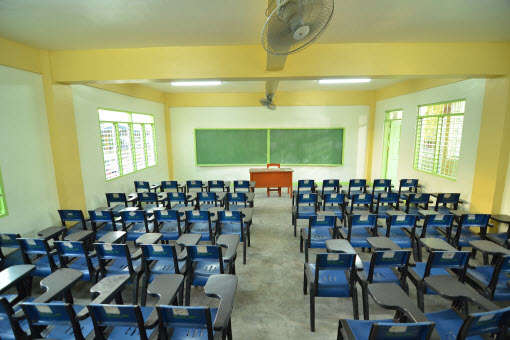
Quick Guide to Selecting an International Curriculum/School for your child
20 Oct 2015 | 4 min Read
Meher Puri
Author | 1 Articles
Are you a parent who is sure to send his/her child for higher studies abroad?
– Is your job likely to take you places overseas?
– Do you want your child to be a curious self-learner rather than just being a high performer on the report card?
– Do you want your child to be more focused on finding solutions in the real world rather than learning different subjects by rote?
If the answer to either or all of these questions is yes, here are the choices you have:
IB (International Baccalaureate)
The curriculum is run and managed by IBO headquartered in Geneva. (http://www.ibo.org/). The curriculum is transdisciplinary, meaning that it focuses on issues that go across subject areas. They have six themes across the year instead of traditional subjects and each theme has its own unit of inquiry. For example – Theme: Who we are? Unit of Inquiry: Body Parts. IB’s Primary Years Programme (PYP: Grades 1- 5) focusses on unit of inquiry. The teachers are trained not to teach but to enable self-learning by invoking the curiosity and imagination of the child. They also present a central idea or throw an open ended question, which then leads different children to do different things to arrive at the solution.
The only standalone subjects taught are English and Math.
Entire year’s curriculum is divided into six themes – Example – Who we are?
Advantages of IB curriculum
– Since the unit of inquiry needs the learner to research his / her findings, they learn by finding out for themselves. Children become life-long learners in the process.
– The learners are not stressed with the burden of exams or scores
– The learners are given an opportunity to showcase their work in front of their teachers, friends and parents. This helps them to become confident.
– IBO mandates high standards for infrastructure like a certain amount of space, laboratories, movable furniture among others. IBO also audits affiliated schools periodically and recommends improvements.
– Teaching faculty is thoroughly trained by IBO to meet its teaching – learning objectives.
Disadvantages of IB curriculum (from a parent’s point of view)
– The formative and summative assessments are assessed by the teacher on the basis of a checklist they have on qualitative aspects of learning (rubrics). There is no marks-oriented report card that they generate.
– Not too much emphasis on spelling errors, handwriting or missing steps in math.
– After the Middle Years programme(Grades 6-10), the child has an only option of pursuingIBDP(Grades11-12). Since there is no marks generated at 10th grade, so it is difficult to get admissions in Indian colleges.
– Fee structure of IB schools may be very heavy on the pocket.
IGCSE is the certificate for10th grade examination and it follows Cambridge International Primary Years Programme (CIPP) curriculum, affiliated to the Cambridge University, UK.The 12th grade examination equivalent is ‘A’ level.
Advantages of CIPP/IGCSE curriculum:
– There is a lot of opportunity for hands-on learning, experiments, thinking-out-of-the box and reasoning (similar to IB).
– They offer detailed feedback to the parents on their child’s strengths and weaknesses.
– Their marking scheme is child friendly. They don’t penalise the child on spelling errors, missing a step during problem solving (unless required) or not writing word-to-word answers from the text.
– At par with nationalboards such as CBSE, ICSE in terms of syllabus content.
– Maybe not as expensive as an IB school.
– No problems while seeking admission in local collegesas they generate subject-wise mark sheets for Grade 10.
– In the higher grades, it offers more than 70 subjects.
Disadvantages of CIPP/IGCSE curriculum: (from parents’ point of view)
– Not too much emphasis on spelling errors, handwriting or missing steps in math.
– This curriculum aims to develop skills in English, Math and Science in the lower grades.
In summary, if you want your child to learn through research and develop good communication skills, and are not obsessed with scores on a report card, look for an IB school.
If you are looking for hands-on learning through interactive sessions, yet seek a detailed subject-oriented report card, then opt for the CIPP curriculum in IGCSE schools.
A


Suggestions offered by doctors on BabyChakra are of advisory nature i.e., for educational and informational purposes only. Content posted on, created for, or compiled by BabyChakra is not intended or designed to replace your doctor's independent judgment about any symptom, condition, or the appropriateness or risks of a procedure or treatment for a given person.
